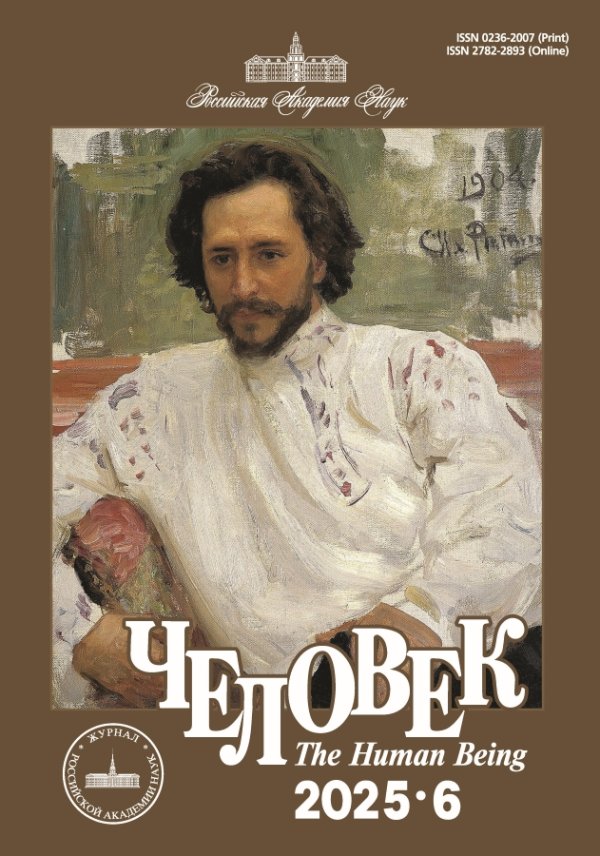The Communicative Nature of Sports
- Authors: Voronin A.A.1
-
Affiliations:
- RAS Institute of Philosophy
- Issue: Vol 34, No 6 (2023)
- Pages: 84-99
- Section: Social practices
- URL: https://journals.rcsi.science/0236-2007/article/view/251309
- DOI: https://doi.org/10.31857/S023620070029306-3
- ID: 251309
Full Text
Abstract
Within the framework of the project of humanitarian expertise of sociocultural phenomena, the concept of sport as a communicative strategy is proposed. To answer the questions of what modern sport is and what are the parameters of its modifications, it is necessary to operate with an understanding of sport in its entirety, since fragmentary studies do not allow subsequent assembly into a single theoretical construct. An attempt was made to develop a sketch of a conceptual apparatus suitable for posing the question of a holistic theoretical reproduction of sports. The most general point of view on the subject is the communicative approach, which, due to its abstractness, sets an adequate level of generalization. Based on it, the structure of the subject of research and the research logic corresponding to it are revealed. Instead of problematic attempts to investigate individual fragments of the whole, in order to put them together later, the author tries to give an elemental analysis of the communicative situation, its structure and components, in order to provide a conceptual apparatus for subsequent specific descriptive and semantic, genetic and philosophical studies.
Keywords
About the authors
Andrey A. Voronin
RAS Institute of Philosophy
ORCID iD: 0000-0002-8607-2229
12/1 Goncharnaya Str., Moscow 109240, Russian Federation
References
- Быховская И.М. Физическая культура как культура тела: антропологический контрапункт природного и социального // Вестн. МГПУ. Сер. «Естественные науки». 2020. Вып. 4(40). doi: 10.25688/2076-9091.2020.40.4.8
- Власов Ю. Соленые радости. М.: Концептуал, 2022.
- Воронин А.А. Антропологические основы философии спорта: к постановке вопроса // ЗПУ. 2020. № 4. С. 96–107. doi: 10.17805/zpu.2020.4.8
- Воронин А.А. Миф техники. М.: Наука, 2006.
- Воронин А.А. От коммуникации к конструированию // Рабочие тетради по биоэтике. Вып. 22. М.: Изд-во Моск. гуманит. ун-та, 2015.
- Гриненко Г.В. Сакральные тексты и сакральная коммуникация. М.: Новый век, 2000.
- Лановский М.Ф. Философия спорта и философское постижение человека: опыт XX века и перспективы XXI // Философия и общество. 2021. № 2. С. 35–57.
- Михайлов Ф.Т. Общественное сознание и самосознание индивида. М.: Наука, 1990.
- Михайлов Ф.Т. Самоопределение культуры. М.: Индрик, 2005.
- Передельский А.А. Двуликий Янус. Спорт как социальный феномен: сущность и онтологические основания: Монография. М.: Спорт, 2016.
- Пономарчук В.А., Козлова В.С. Институт спорта (история и реалии). Минск: Белорус. гос. акад. физ. культуры, 2002.
- Филаретов П.Г. Философия силы. [Б.м., 2009]. URL: htth//fictionsbook.ru/autor/petr_laretov/filosofia/siliy/read_online/htmt (дата обращения:10.01.2023).
- Энгельгардт М.А. Прогресс как эволюция жестокости. [Репр. воспр. изд. 1899 г. (СПб.)]. М.: Ленанд, 2021.
- Habermas J. Theorie des kommunikativen Handelns. Bd 1–2. Frankfurt am Main: Suhrkamp, 1981.










